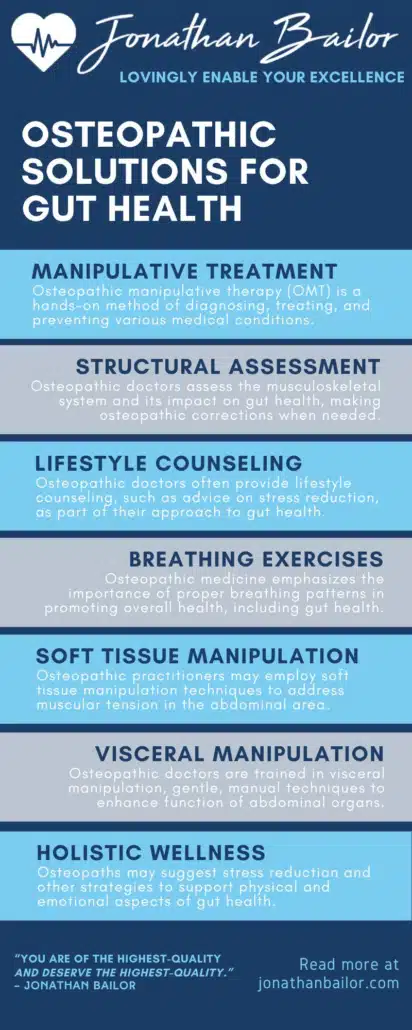28 Proven Ways to Boost the Effects of Probiotics for Gut Health
Here are 28 proven ways to boost the effects of probiotics for gut health in this Gut Health article with Jonathan Bailor! Welcome to a journey of discovery tailored just for you. In the wellness world, there’s a powerful secret to the vitality that’s been hiding in plain sight – probiotics. This transformative exploration is about to unveil 28 science-backed treatments that may significantly increase the beneficial effects of probiotics to elevate your gut health.
Here are our most popular gut health guides to read next: 26 Habits to Improve Gut Health with Probiotics at Every Stage of Life and 20 Ways to Feel Less Bloated After Big Holiday Meals.
Gut health is your silent partner in well-being, influencing everything from digestion to your immune system and even your mood. Although it appears complex, it’s actually an exciting journey.
This blog post isn’t just about information; it’s a collection of evidence-based treatments designed to empower you. These treatments are personalized and highly effective when combined with probiotics. They’re designed to be shared because, when you’re armed with knowledge, you can also help others embark on their path to better health.
So, get ready to unlock the power of probiotics and discover the evidence-based treatments that can transform your gut health. Share this wisdom with your friends and family because, together, we can create a healthier world—one gut at a time.
Allopathic Solutions for Gut Health and Probiotics: Evidence-Based Approaches
1. Prescription Probiotics
Allopathic medicine recognizes the health benefits of probiotics, and healthcare providers can prescribe specific probiotic formulations to address various gut health issues. These prescription probiotics often contain higher concentrations of beneficial strains and are used to manage conditions like irritable bowel syndrome (IBS), inflammatory bowel disease (IBD), and antibiotic-associated diarrhea. Over-the-counter probiotic supplements can help improve your gut health, but they are not nearly as effective as the prescription variety when it comes to addressing specific gastrointestinal disorders.
2. Antibiotics with Precision
Allopathic medicine offers targeted antibiotic treatments in cases of severe gut infections or bacterial overgrowth. These medications can help eliminate harmful bacteria in your digestive system and restore a healthy balance in the gut, especially when used in conjunction with specific probiotic strains. It’s essential to use antibiotics under the guidance of a healthcare professional to minimize potential side effects.
3. Gastrointestinal Medications
Allopathic solutions include a range of medications to manage gut-related symptoms. For example, antacids and proton pump inhibitors (PPIs) can help alleviate acid reflux and heartburn. Additionally, medications like anti-diarrheals and laxatives are available to manage specific gastrointestinal issues.
4. Immunosuppressive Drugs
In the case of autoimmune conditions affecting the gut, such as Crohn’s disease or ulcerative colitis, allopathic medicine employs immunosuppressive drugs. These medications help modulate the immune response, reducing inflammation and relieving symptoms of these chronic conditions.
5. Diagnostic Tests
Allopathic medicine uses various diagnostic tests, including endoscopy, colonoscopy, and imaging studies, to assess gut health accurately. These procedures can identify structural issues, inflammatory conditions, or malignancies, enabling precise diagnoses and treatment plans.
6. Surgery for Gut Disorders
In severe cases of gut disorders like colorectal cancer, diverticulitis, or ulcerative colitis, surgery may be necessary. Allopathic medicine offers advanced surgical techniques to remove affected portions of the intestine, repair damage, and improve overall gut health.
7. Nutritional Counseling
Registered dietitians and nutritionists play a vital role in allopathic medicine by providing evidence-based dietary guidance for individuals with gut health concerns. They can help patients make informed food choices to manage conditions like celiac disease, food allergies, or sensitivities.
These allopathic solutions are grounded in Western medicine’s evidence-based approach to healthcare. When used under the guidance of healthcare professionals, these treatments can address a wide range of gut health issues and improve overall well-being.

Feeling Better Is Priceless, That's Why We Don't Put A Price On It!
“It’s Like A Free and Medically Valid Version of Noom and Weight Watchers Online”
~ Dr. Doctor Matthew Oleshiak, MD
Click the 'LEARN MORE' button below for free lifetime access to the fast fix program developed by Jonathan and top Ivy League Medical Doctors
LEARN MOREP.S. It's not a free trial. It's not part of the program for free. The entire program is free, forever, for real! No credit card needed.
Naturopathic Solutions for Gut Health: Holistic Approaches
1. Nutrient-Rich Diet
Naturopathic medicine emphasizes the healing power of food. Adopting a nutrient-dense diet with plenty of whole, unprocessed foods is a fundamental step. Incorporate probiotic-rich foods like yogurt, sauerkraut, and kefir, as well as fiber from fruits and vegetables, to nourish your gut microbiome.
2. Herbal Supplements
Naturopathic practitioners often recommend herbal supplements to support gut health. For example, peppermint oil can alleviate symptoms of irritable bowel syndrome (IBS), while slippery elm bark can soothe digestive discomfort. These natural remedies can provide relief without the side effects associated with some medications.
3. Gut-Friendly Teas
Herbal teas like ginger, chamomile, and dandelion root are staples in naturopathic care for their digestive benefits. These soothing teas can ease indigestion, bloating, and gas symptoms, making them valuable allies in promoting gut comfort.
4. Probiotic-Rich Fermented Foods
Naturopathic approaches often encourage the consumption of fermented foods like kimchi, kombucha, and miso. These naturally probiotic-rich foods introduce beneficial bacteria into the gut, supporting a balanced microbiome.
5. Digestive Enzyme Supplements
In cases of impaired digestion, naturopathic practitioners may recommend digestive enzyme supplements. These enzymes can help break down food more efficiently, aiding digestion and nutrient absorption.
6. Stress Management Techniques
Naturopathic medicine recognizes the strong connection between stress and gut health. Practices like mindfulness meditation, deep breathing exercises, and yoga are commonly recommended to reduce stress levels, creating a more favorable environment for gut healing.
7. Lifestyle Modifications
Naturopathic solutions often involve holistic lifestyle adjustments. This includes staying hydrated, getting regular exercise, and prioritizing sleep. These lifestyle changes contribute to overall well-being and can positively impact gut health.
Naturopathic solutions offer a holistic approach to gut health, focusing on natural remedies and lifestyle modifications. These approaches aim to address the root causes of gut issues, promoting long-term well-being and a balanced gut microbiome.

Osteopathic Solutions for Gut Health: A Holistic Approach
1. Osteopathic Manipulative Treatment (OMT)
Osteopathic physicians are trained in OMT, a hands-on approach to diagnosing, treating, and preventing various medical conditions, including gut issues. OMT techniques can help improve the mobility of abdominal muscles and organs, enhance digestive function, and alleviate discomfort.
2. Structural Assessment
Osteopathic practitioners assess the musculoskeletal system and its impact on gut health. They consider factors like posture and spinal alignment, as misalignments or imbalances can affect nerve function and contribute to digestive problems. Osteopathic adjustments can restore proper alignment and function.
3. Lifestyle Counseling
Osteopathic physicians often provide lifestyle counseling as part of their approach to gut health. They may offer guidance on stress management techniques, dietary modifications, and exercise regimens tailored to each individual’s needs. These recommendations aim to foster a balanced gut environment.
4. Breathing Exercises
Osteopathic medicine emphasizes the importance of proper breathing patterns in promoting overall health, including gut health. Diaphragmatic breathing techniques can reduce stress, improve oxygenation, and enhance digestion by calming the nervous system.
5. Soft Tissue Manipulation
Osteopathic practitioners may employ soft tissue manipulation techniques to address muscular tension in the abdominal area. These techniques can aid digestion and alleviate discomfort by releasing tension and improving blood flow to the gut.
6. Visceral Manipulation
Osteopathic physicians are trained in visceral manipulation, which involves gentle, manual techniques to enhance the movement and function of abdominal organs. This approach can be particularly beneficial for individuals with chronic digestive issues.
7. Holistic Wellness
Osteopathic solutions prioritize the holistic well-being of individuals. Osteopathic physicians consider the interconnectedness of the body and mind when addressing gut health. They may recommend stress reduction techniques, mindfulness practices, and other strategies to support both physical and emotional aspects of gut health.
Osteopathic solutions offer a holistic and hands-on approach to improving gut health. By addressing structural and lifestyle factors, osteopathic physicians aim to restore balance and harmony within the body, promoting optimal digestion and overall well-being.

Alternative Medicine and Eastern Medicine Solutions for Gut Health
1. Traditional Chinese Medicine (TCM) Acupuncture
TCM recognizes the vital connection between the gut and overall health. Acupuncture, a cornerstone of TCM, can help balance the body’s energy, or qi, and address digestive imbalances. Acupuncture is a technique that involves inserting thin needles into specific acupuncture points in the body. This technique is used by practitioners to stimulate gut function, alleviate discomfort, and support overall well-being.
2. Ayurvedic Herbal Remedies
Ayurveda, the ancient system of medicine from India, offers a wealth of herbal remedies for digestive health. Herbs like Triphala, ginger, and fennel are used to ease indigestion bloating and promote healthy digestion. Ayurvedic practitioners tailor remedies to an individual’s unique constitution and needs.
3. Meditation and Mindful Eating
Mind-body practices, such as meditation and mindful eating, are integral to Ayurveda and traditional Eastern medicine. These practices cultivate awareness, reduce stress, and promote a balanced approach to food. By eating mindfully and in a relaxed state, you can enhance digestion and gut comfort.
4. Japanese Kampo Medicine
Kampo, a traditional Japanese herbal medicine system, offers unique gut health remedies. Herbal formulations like Daikenchuto (DKT) are used to relieve symptoms of functional gastrointestinal disorders and improve bowel function. Kampo medicine takes a holistic approach to addressing gut issues.
5. Yoga for Digestive Health
Yoga, originating from ancient India, offers a range of poses and practices specifically designed to support gut health. Poses like the “Wind-Relieving Pose” and “Cat-Cow Stretch” can stimulate digestion, relieve bloating, and ease constipation. Regular yoga practice can promote overall gut wellness.
6. Tai Chi for Gut Harmony
Tai Chi, a gentle and flowing martial art from China, can improve gut health through its stress-reducing and meditative qualities. The slow, deliberate movements of Tai Chi can enhance digestion, reduce inflammation, and promote relaxation, supporting gut health over time.
7. Homeopathic Remedies
Homeopathy, an alternative medicine system, offers individualized remedies for various gut-related issues. Homeopathic practitioners prescribe remedies based on an individual’s specific symptoms and constitution. These highly diluted remedies aim to stimulate the body’s innate healing ability and restore gut balance.
Alternative and Eastern medicine solutions encompass a rich tapestry of practices and remedies that prioritize balance, harmony, and holistic well-being. These approaches offer a complementary perspective on gut health and can be a valuable addition to your wellness journey.

FAQ: Navigating the Path to Gut Health
Q1: What Is the Gut Microbiome, and Why Is It Important for Health?
A1: The gut microbiome refers to the vast community of microorganisms in your digestive tract, including bacteria, viruses, and fungi. It plays a crucial role in digestion, nutrient absorption, and immune system regulation. A balanced gut microbiome is essential for overall health, as it helps protect against harmful pathogens, synthesizes vitamins, and influences various bodily functions.
Q2: How Can I Improve My Gut Health Naturally?
A2: Improving gut health naturally involves adopting a well-rounded approach. Start by eating a diverse, fiber-rich diet that includes plenty of fruits and vegetables. Incorporate fermented foods like yogurt, kimchi, and sauerkraut to introduce beneficial probiotics. Manage stress through techniques like meditation or deep breathing, as chronic stress can disrupt gut health. Stay hydrated, exercise regularly, and prioritize quality sleep to support a healthy gut.
Q3: Are Probiotics a Safe and Effective Way to Boost Gut Health?
A3: When used appropriately, probiotics can be safe and effective for improving gut health. These live beneficial bacteria can help restore balance in the gut microbiome. However, choosing the right probiotic strains for your specific needs is essential. It is important to consult with a healthcare professional, particularly if you have underlying health conditions or are taking medications. The effects of probiotics may differ from person to person, so it is important to monitor how they affect your gut health.
Q4: Can Gut Health Affect My Mental Well-Being?
A4: Yes, gut health and mental well-being are interconnected. The gut-brain axis is a bidirectional communication system between the gut and the brain. A balanced gut microbiome plays a role in regulating mood and mental health. Imbalances in the gut microbiome have been associated with conditions like anxiety and depression. Therefore, nurturing your gut health through diet, probiotics, and stress management can positively influence your mental well-being.
Q5: When Should I Seek Professional Help for Gut Health Concerns?
A5: It’s essential to seek professional help for gut health concerns if you experience persistent symptoms like severe abdominal pain, blood in stools, unexplained weight loss, or chronic diarrhea. Additionally, if you have underlying conditions like inflammatory bowel disease (IBD) or irritable bowel syndrome (IBS), consult with a healthcare provider for proper diagnosis and management. If you’re considering significant dietary or lifestyle changes to address gut issues, it’s advisable to consult a registered dietitian or healthcare professional for guidance tailored to your unique needs.
Share the Wisdom: Cultivate Gut Health, Transform Wellness
In your quest for gut health, you’ve uncovered a world of possibilities and knowledge. Remember, your gut is a dynamic ecosystem that influences your entire well-being. As you embark on this journey, consider sharing the wisdom you’ve gained with friends and family. The path to gut health is one we all navigate, and your insights can spark positive changes in others’ lives. Whether through social media, email, or a simple conversation, invite them to join in on the discussion. Together, we can cultivate gut health, transform wellness, and create a healthier world—one gut at a time.
Feeling Better Is Priceless, That's Why We Don't Put A Price On It!
“It’s Like A Free and Medically Valid Version of Noom and Weight Watchers Online”
~ Dr. Doctor Matthew Oleshiak, MD
Click the 'LEARN MORE' button below for free lifetime access to the fast fix program developed by Jonathan and top Ivy League Medical Doctors
LEARN MOREP.S. It's not a free trial. It's not part of the program for free. The entire program is free, forever, for real! No credit card needed.




